Improving vocabulary Normal Worksheets for Ages 6-7
6 filtered results
-
From - To
Enhance your child's language skills with our "Improving Vocabulary Normal Worksheets" designed specifically for ages 6-7. These worksheets aim to expand children's vocabulary through engaging activities that promote word recognition, usage, and comprehension. Each activity is tailored to make learning fun and interactive, helping young learners connect new words to their everyday lives. From matching exercises to fill-in-the-blanks, children will develop essential language skills while enjoying the process. Our resources are perfect for both classroom settings and at-home learning. Start boosting your child’s vocabulary today and watch their confidence in language blossom!
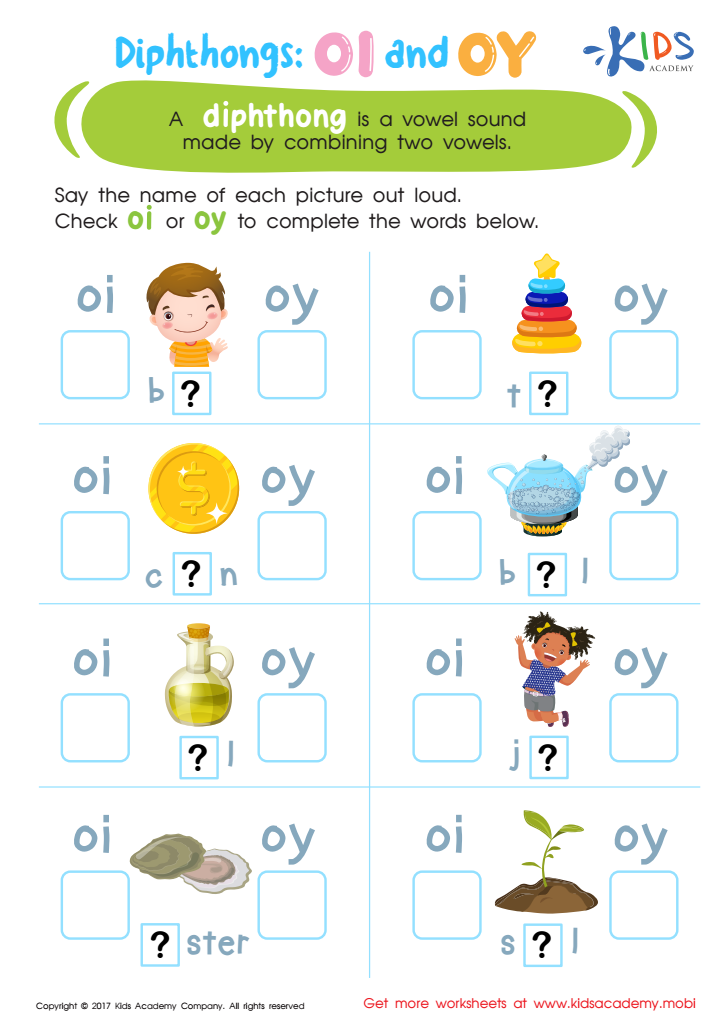

Vowel Diphthongs OI OY Worksheet
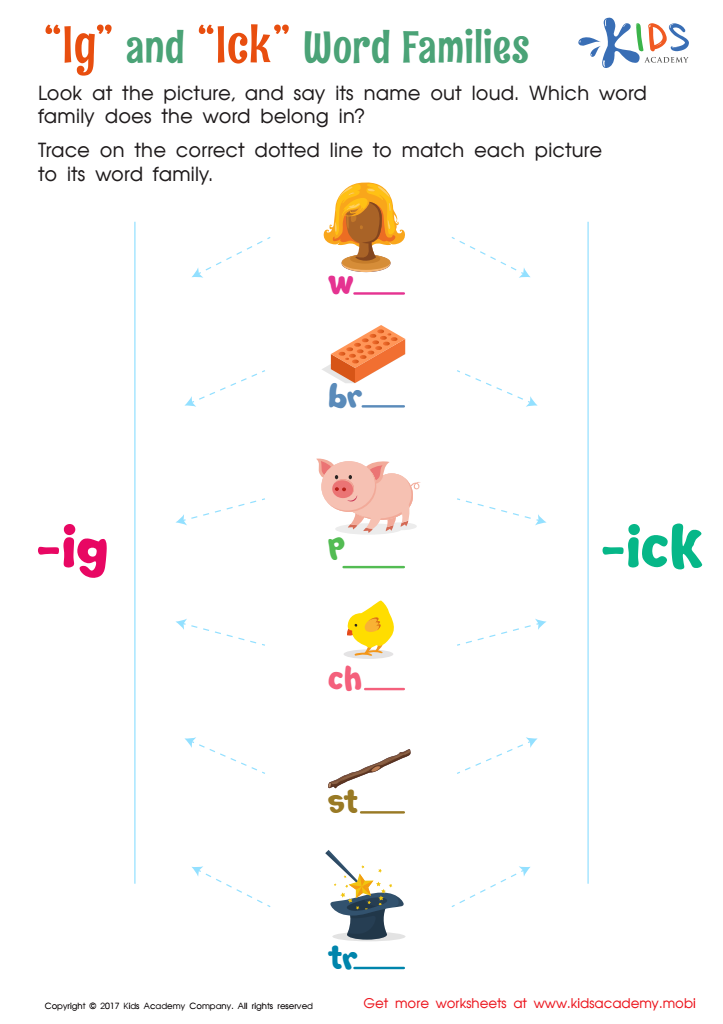

Words Families "ig" and "ick" Spelling Worksheet
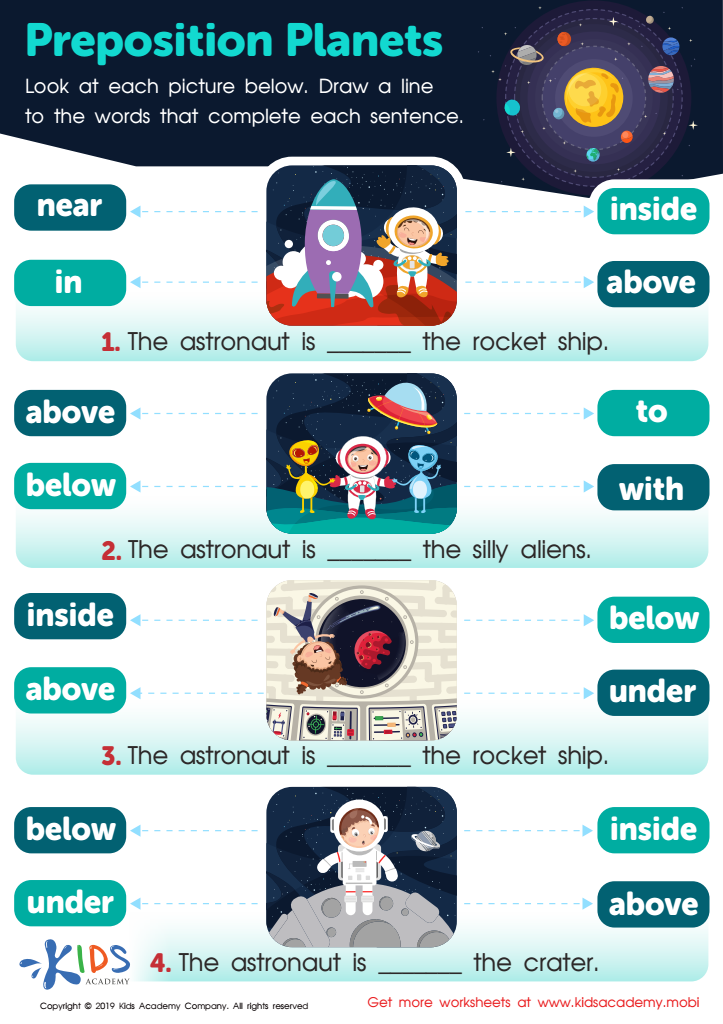

Preposition Planets Worksheet
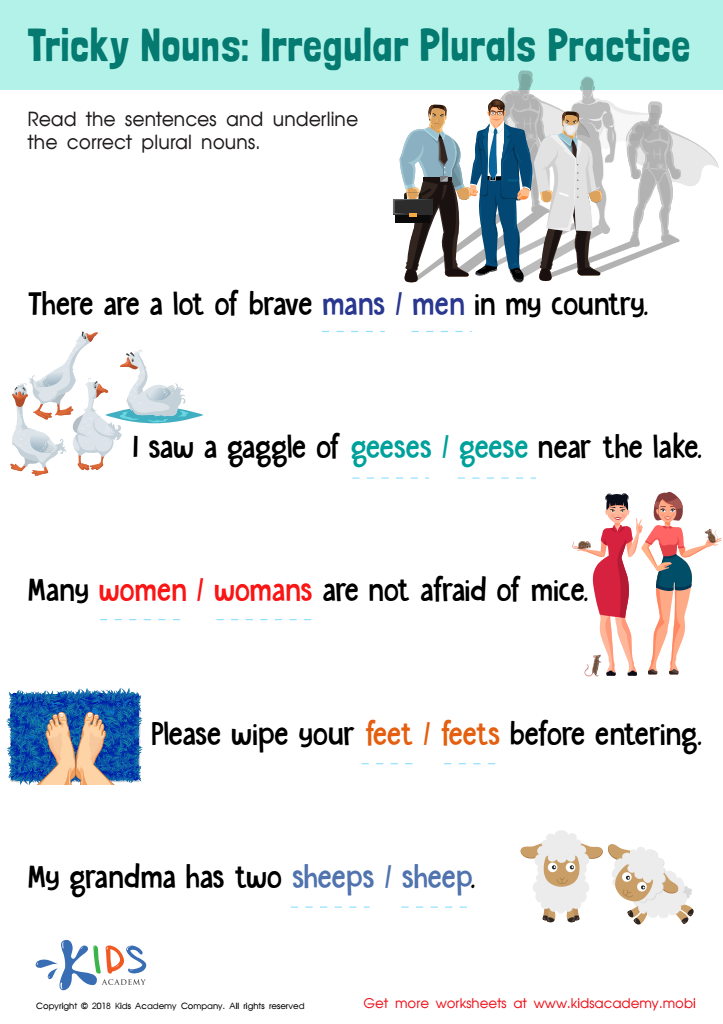

Tricky Nouns: Irregular Plurals Practice Worksheet
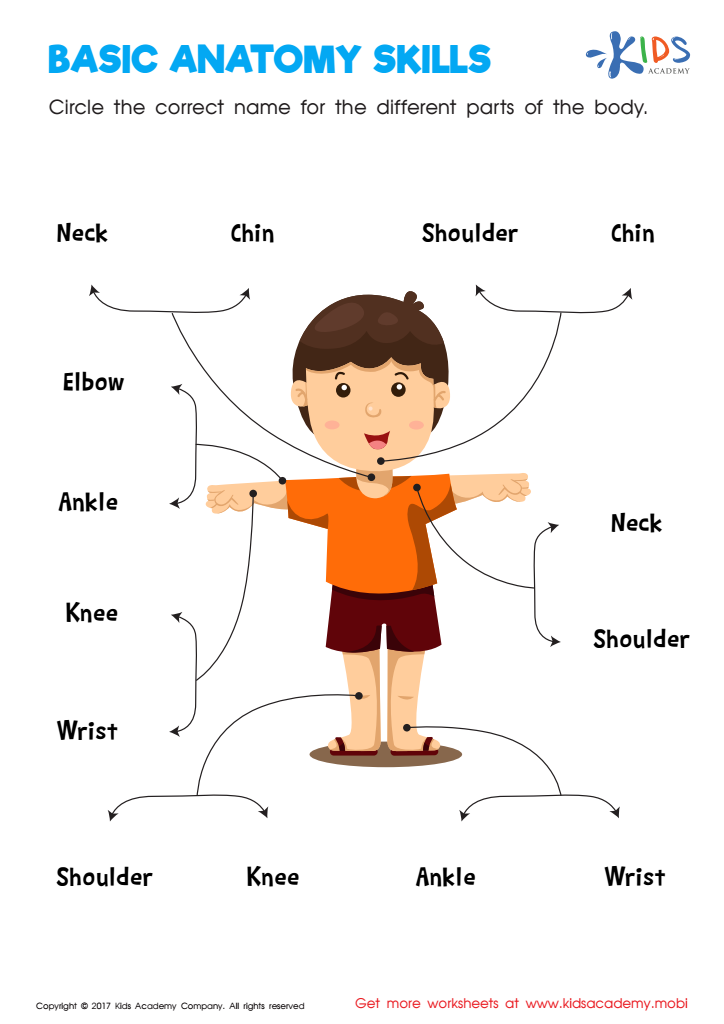

Basic Anatomy Skills Printable
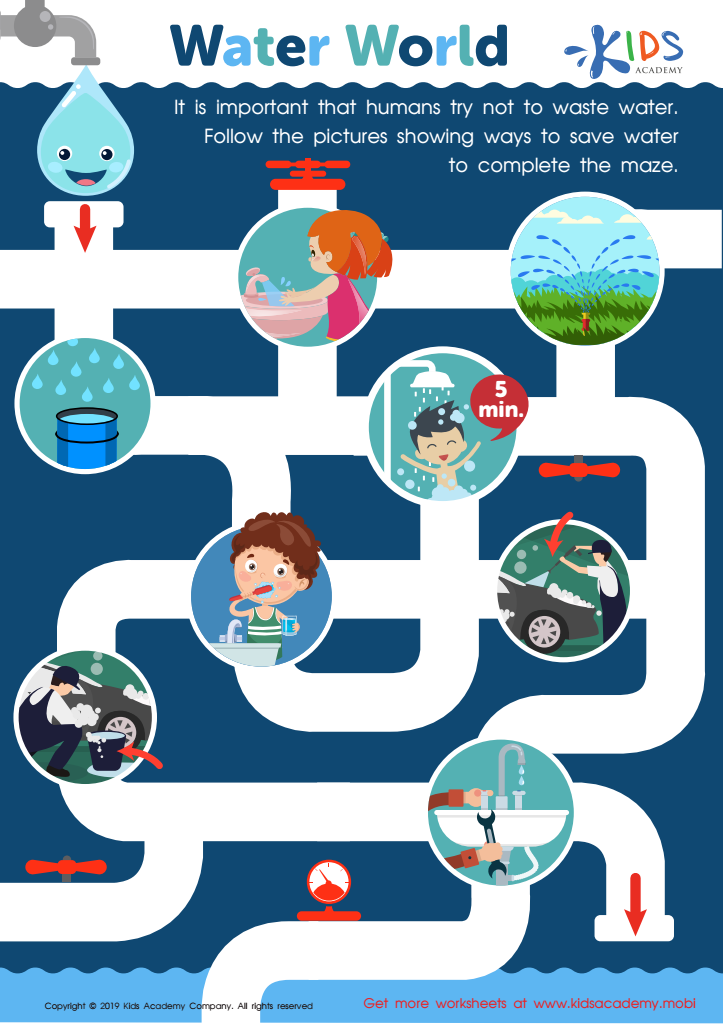

Water World Worksheet
Improving vocabulary in children aged 6-7 is crucial for their overall academic and social development. At this age, children are rapidly developing their language skills, and a robust vocabulary lays the foundation for effective communication, reading comprehension, and critical thinking. A rich vocabulary allows children to express themselves more clearly, enabling them to articulate their thoughts, feelings, and ideas confidently.
Moreover, vocabulary enhancement plays a significant role in academic success. Studies show that a strong vocabulary is closely linked to better performance in reading and writing. As children encounter new words in their reading materials, having a broader vocabulary helps them understand and engage with content more meaningfully, fostering a love for reading.
Parents and teachers should also recognize that vocabulary influences social interactions. Children who can communicate better are more likely to build relationships with peers, navigate social situations, and develop emotional intelligence.
Implementing vocabulary improvement strategies, such as reading diverse literature, engaging in meaningful conversations, and playing word games, can significantly benefit children at this developing stage. By prioritizing vocabulary growth, parents and teachers can empower children to become effective communicators and successful learners.
 Assign to My Students
Assign to My Students



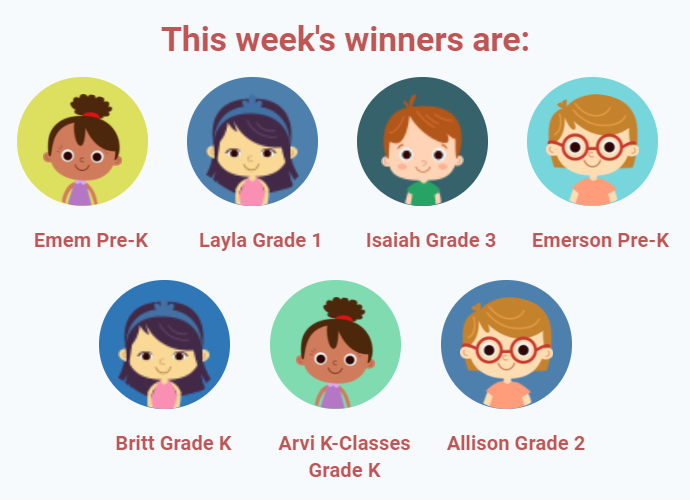


.jpg)









